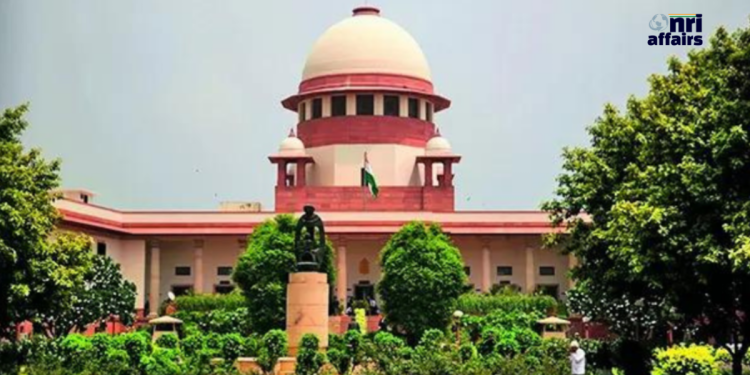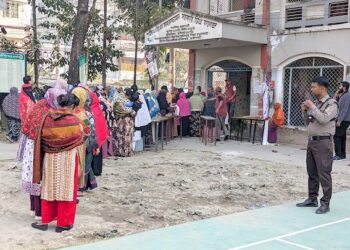In a significant ruling, the Supreme Court of India has put an end to the practice of allowing Non-Resident Indian (NRI) quotas in educational institutions, particularly in Punjab, where the state had sought to defend this system. This verdict holds substantial ramifications for India’s higher education sector and marks a bold stance by the judiciary against what was referred to as a “fraudulent” practice. The decision underscores the importance of merit-based admissions and is expected to transform the landscape of educational opportunities across the country.
The Origins of the NRI Quota
NRI quotas were initially conceived as a means of generating foreign exchange for the country while offering a streamlined admission process for students of Indian origin living abroad. The policy was primarily aimed at children of NRIs who wished to study in India, particularly in professional courses like medicine, engineering, and law. These quotas, however, typically came at a steep price, as students were required to pay significantly higher fees than their Indian-resident counterparts.
Over time, the noble intent behind this policy began to erode, as wealthy individuals increasingly took advantage of the system to secure seats in prestigious institutions, regardless of merit. Critics argued that the quota had become a tool for the rich to bypass competitive entrance exams, making it increasingly difficult for deserving students from lower-income backgrounds to access higher education.
Supreme Court’s Judgment
The Supreme Court’s decision to reject Punjab’s plea to retain the NRI quota system reflects a growing concern about the integrity of India’s higher education admissions process. The court was unequivocal in its condemnation, calling the quota a “fraud” and stating that it unfairly allowed the wealthy to buy their way into coveted educational institutions, especially medical colleges. The ruling represents a major shift toward ensuring that educational opportunities in India are awarded on the basis of merit rather than financial capability.
The judgment highlighted that meritocracy should be the cornerstone of admissions, particularly in critical fields such as medicine and engineering, where the competence of professionals has far-reaching consequences for society. The court further noted that such quotas open the door to exploitation and can dilute the quality of education, undermining the very purpose of these institutions.
Impact on Educational Institutions
The immediate fallout of the ruling is likely to be felt most acutely by private colleges and universities, many of which have relied on the NRI quota as a significant source of revenue. In many institutions, particularly in medical and engineering colleges, a portion of the seats was reserved for NRIs, and these seats were sold at prices far higher than those charged to domestic students.
With the elimination of this quota, these institutions will be forced to rethink their admission policies. They will now have to compete for merit-based students, which could pose financial challenges, particularly for smaller or less established institutions that have relied heavily on NRI fees. The judgment could also spur reforms within the educational system to ensure more equitable access to education.
Merit-Based Admissions: A Step Toward Educational Equity
One of the core messages of the Supreme Court’s ruling is the emphasis on merit-based admissions as a means of promoting educational equity. By eliminating the NRI quota, the court has taken a stand against a system that allowed the wealthy to circumvent standard admission procedures, often at the expense of more deserving candidates.
This ruling is likely to have a ripple effect across India’s educational landscape, prompting a reevaluation of how admissions are conducted, particularly in highly competitive fields like medicine and engineering. The decision reinforces the idea that access to education should be determined by academic achievement rather than the ability to pay large sums of money.
The move is also expected to encourage greater accountability among educational institutions. In the past, many colleges and universities have been accused of using the NRI quota as a means of generating additional revenue, often with little regard for the quality of education provided. The Supreme Court’s ruling could usher in a new era of transparency and fairness in the admissions process, ensuring that all students have an equal opportunity to succeed.
Broader Social Implications
Beyond the immediate impact on educational institutions, the Supreme Court’s ruling has broader social implications, particularly in terms of how Indian society views education and privilege. By striking down the NRI quota, the court has sent a strong message that education should not be commodified and that wealth should not be the deciding factor in determining who has access to higher education.
The ruling is also likely to resonate with Indian families living abroad, many of whom have relied on the NRI quota as a means of ensuring their children’s admission to prestigious Indian institutions. For these families, the decision may require a shift in strategy, as they will now have to compete on the same footing as domestic students in terms of academic achievement.
While this may pose challenges for some, it also represents an opportunity for NRIs to engage more deeply with the Indian educational system and to contribute to a merit-based admissions process that is fair and transparent.
The Future of Quotas in India
The Supreme Court’s ruling on the NRI quota raises important questions about the future of quota systems in India more broadly. While caste-based reservations remain a deeply entrenched aspect of the Indian educational system, the elimination of the NRI quota could signal a broader shift toward reducing the role of quotas in admissions.
At the same time, the ruling could prompt a reexamination of how quotas are used to ensure that they serve their intended purpose of promoting social and economic mobility, rather than perpetuating inequality. This is particularly relevant in the context of ongoing debates about the role of affirmative action in education, as well as the broader question of how to create a more equitable society.
The Supreme Court’s rejection of Punjab’s plea to retain the NRI quota represents a significant step forward in the quest for a more equitable and merit-based educational system in India. By calling out the practice as fraudulent, the court has sent a clear message that wealth should not be a determinant of educational opportunity, and that merit must be the guiding principle in admissions.
This ruling is likely to have far-reaching implications for both students and educational institutions, and could mark the beginning of a new era in Indian higher education, where merit, fairness, and transparency take precedence over privilege and financial power.











